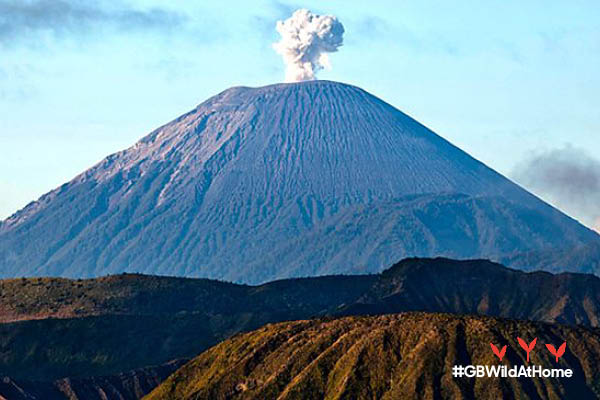Here’s the first of our guest blogs as part of our #GBWildAtHome digital summer here at Greenbelt … This one is written by Chine McDonald. Chine is a Greenbelt trustee and head of Media & PR at Christian Aid. This blog is adapted from her BBC Radio 4’s ‘Thought for the Day’, given on 15 January 2019.
“I had a dream, which was not all a dream.
The bright sun was extinguish’d, and the stars
Did wander darkling in the eternal space.”
Written in July 1816, these words from Lord Byron’s poem Darkness tell of the strange events of The Year Without a Summer. It followed the eruption of Mount Tambora, in what is now Indonesia, which sparked months of strange climate as a large dust cloud of volcanic ash entered the atmosphere and made its way across the globe, causing disruption.
During this period, the sun frequently disappeared, and the dark cloud that ensued led many people to suffer psychologically and also physically due to the particularly low temperatures. Instead of summer, the winter continued.
Some thought the strange climate signalled the destruction of the sun and the end of the world.
We know of course now that – though the dark uncertainty might have felt never-ending in 1816, and there were very real consequences for people – the world did not in fact end.
The world kept on spinning, and eventually the sun emerged from the cloud.
One of the most notable things about The Year Without a Summer is the number of seminal works of art, music and literature that it sparked. Though dark, the terrible weather seems to have released creative genius into the air.
It was around this time that Beethoven began his celebrated late period of composition, Mary Shelley wrote Frankenstein, and Byron his epic poem Prometheus, to name a few.
Just as it did that fateful summer 200 years ago, beauty can emerge from uncertainty.
In this global pandemic in which we find ourselves, uncertainty, despair and tragedy feel very present and beauty can seem very far away – something we need to intentionally search for. Greenbelt is one of those places where every year I find beauty amid brokenness. This year, we won’t be able to meet together in the beautiful grounds of Boughton – for some of us, it’ll feel like this year will be without a summer. For those of us who have found a home and a family at Greenbelt, the grief of not being together is something we’ll have to work through, together. But we remain people of hope. Summer will come again.
The hope spoken of in the Christian faith – while not denying fear and uncertainty – requires the believer to look beyond present circumstances and instead to choose to have faith in a better future.
As 14th century Christian mystic Julian of Norwich put it: “All shall be well, and all manner of thing shall be well.”
But hope is not a lottery ticket. Nor is it blind or passive optimism. For me, it is the firm belief that we can make things better by working together.
For more on our digital summer of content for 2020, visit our #GBWildAtHome webpage here and sign-up to our email Dispatches here.


